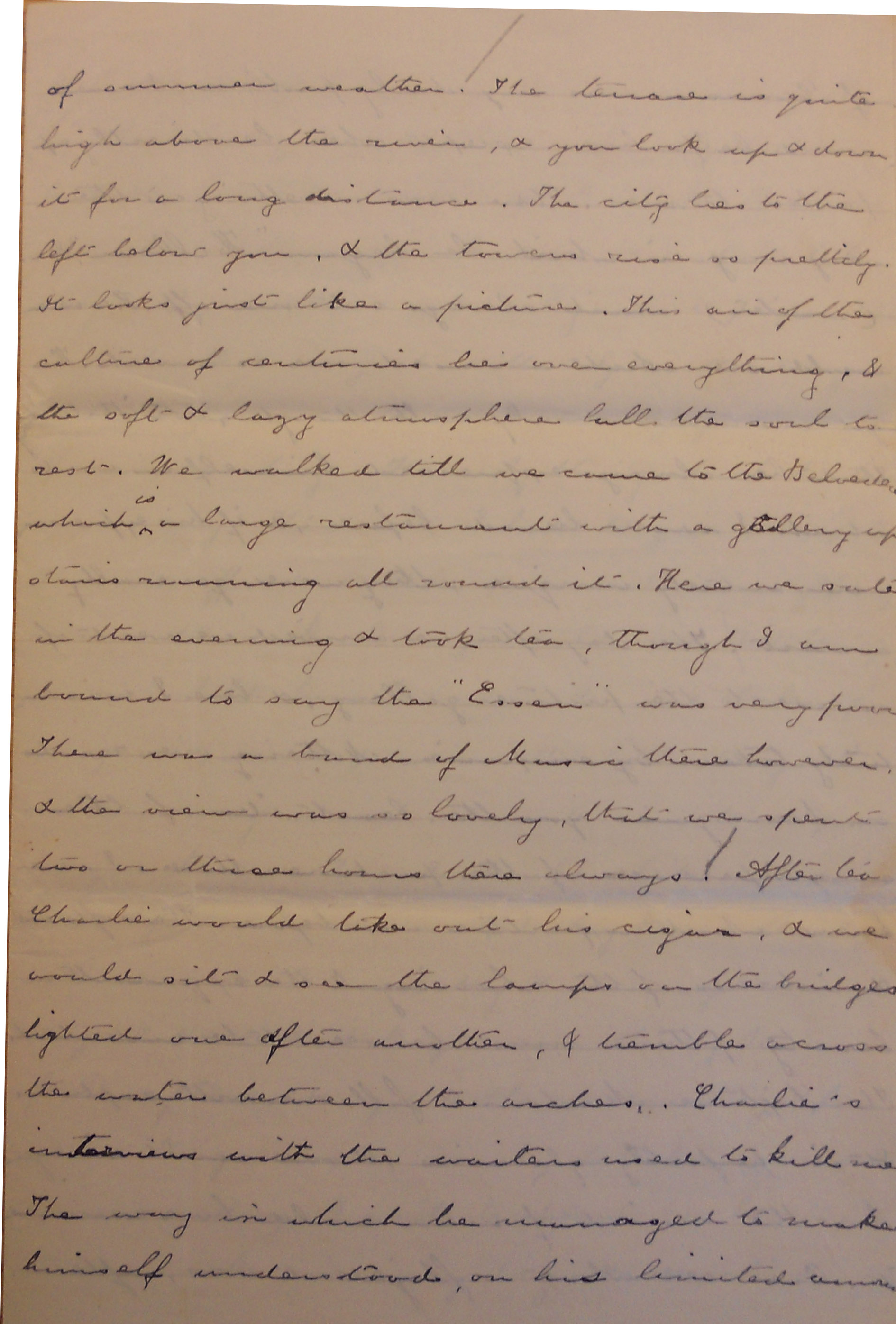|
My Dearest Sohne, I enclose the chronicle of Charlie's adventures which he sent me to be forwarded to you & that I might have the benefit of them without his having the trouble to write twice. I suppose he has described to you in full our Dresden visit & what a nice time we had. It was really a poetic five days, as everything was new to both of us, & I only wish you have been with us in our voyage of discovery. Charlie behaved most angelically the whole three weeks that we spent together, and made himself as sweet as possible. He is going through Europe in the thorough way in which he does everything & what he don't see won't be worth seeing. We were a good deal surprised at many things in Dresden. In the first place the beauty of the city struck us very forcibly, & we
|

